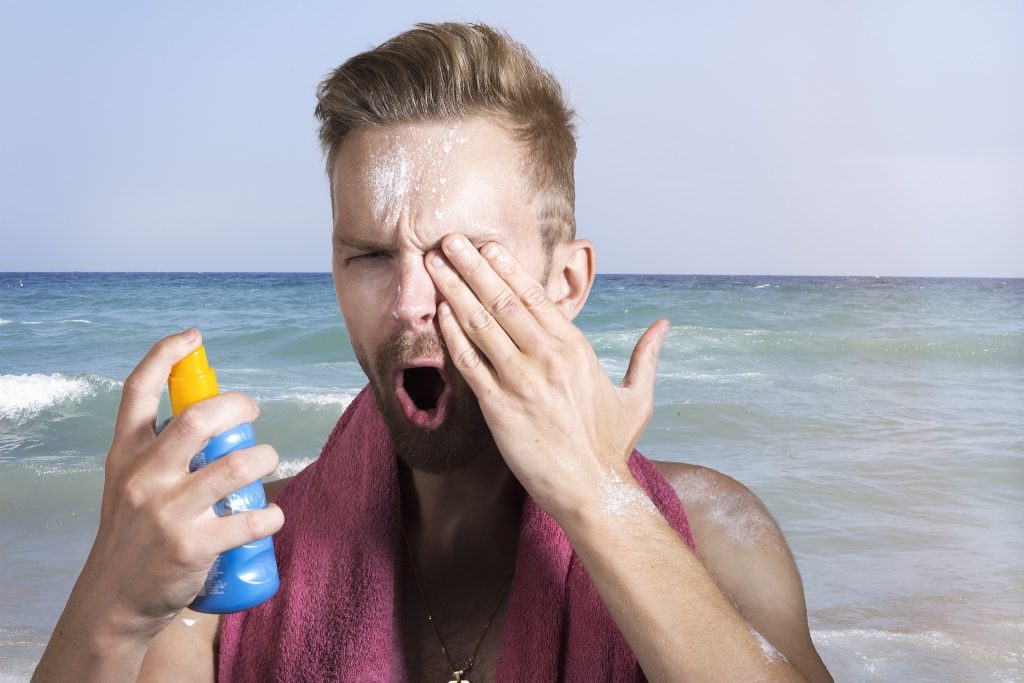Introduction:
As the sun’s rays shine down, safeguarding your skin against their potential harm becomes paramount. The key to effective sun protection lies in understanding the meaning behind SPF numbers. This guide dives into the science of SPF, deciphering those numbers on sunscreen bottles, and empowering you to choose the right SPF for your skin and activities.
What Does SPF Stand For?
SPF stands for “Sun Protection Factor.” It’s a numerical representation of a sunscreen’s ability to shield your skin from the sun’s ultraviolet (UV) radiation.
Understanding SPF Numbers:
The SPF number on a sunscreen bottle indicates the level of protection it offers against UVB rays, the type responsible for causing sunburn. The higher the SPF number, the greater the protection.
The Science Behind SPF:
SPF works by extending the time you can stay in the sun without getting sunburned. For instance, if your skin typically burns after 10 minutes in the sun, applying SPF 30 theoretically allows you to stay outside for 30 times longer (300 minutes) without burning.
Deciphering SPF Ratings:
SPF ratings can be perplexing. SPF 15 filters out about 93% of UVB rays, SPF 30 filters around 97%, and SPF 50 offers around 98% protection. The increase in protection beyond SPF 30 is marginal, leading to misconceptions about higher values providing significantly more coverage.
Real-world Application of SPF:
Applying sunscreen with higher SPF doesn’t mean you can skimp on reapplication. Regardless of the SPF number, sunscreen should be reapplied every two hours and after swimming or sweating.
Factors Affecting Sunscreen Effectiveness:
SPF is just one aspect of sun protection. Factors like the amount applied, skin type, and sun intensity also influence a sunscreen’s effectiveness.
Matching SPF to Your Skin Type:
Consider your skin’s sensitivity and needs. Fairer skin and those prone to burning might opt for higher SPF, while deeper skin tones might find lower SPF effective.
SPF for Different Activities:
Choose the appropriate SPF based on your planned outdoor activities. For extended sun exposure, higher SPF might be prudent.
SPF and Reapplication:
No SPF is effective all day. Reapplication is key, especially after sweating or swimming. Using a water-resistant formula can be beneficial.
Sun Protection Beyond SPF:
Sunscreen is a critical part of sun protection, but other measures like seeking shade, wearing protective clothing, and using sunglasses also contribute to comprehensive sun safety.
Common Myths About SPF Numbers:
Myth: Higher SPF means you can stay in the sun all day. Reality: No sunscreen provides all-day protection. Reapplication is necessary.
Consulting Experts for SPF Recommendations:
Dermatologists can offer tailored advice on selecting the right SPF based on your skin type, lifestyle, and planned activities.
Choosing the Right SPF: Practical Tips:
Consider the duration of sun exposure, your skin’s needs, and the SPF’s broad-spectrum protection. Apply generously and reapply consistently.
Market Varieties and Trends: From Lotions to Sprays:
The market offers a wide array of sunscreen products, including lotions, sprays, and sticks. Choose a format that suits your preference and encourages consistent use.
Empowering Yourself with SPF Knowledge:
Understanding SPF numbers empowers you to make informed choices about sun protection. Your skin’s health is in your hands.
Conclusion:
The numbers behind SPF carry a profound significance in safeguarding your skin from the sun’s rays. Armed with the knowledge of SPF ratings and their real-world implications, you’re equipped to make wise choices that prioritize your skin’s well-being.
FAQs (Frequently Asked Questions):
- Can I use a higher SPF to stay in the sun longer? While higher SPF offers more protection, it doesn’t mean you can stay in the sun indefinitely. Reapplication is essential.
- Does higher SPF cause less tanning? Higher SPF doesn’t prevent tanning; it primarily reduces the risk of sunburn. Tanning is a sign of skin damage.
- Do I need sunscreen on cloudy days? Yes, UV rays can penetrate clouds. Apply sunscreen even on cloudy days to ensure continuous protection.
- Can I use expired sunscreen if it still smells fine? It’s best to avoid using expired sunscreen. The active ingredients might lose their effectiveness over time.
- Can I skip sunscreen if I’m indoors most of the time? UV rays can penetrate windows, so even indoor exposure warrants sunscreen application, especially if you’re near windows for extended periods.


